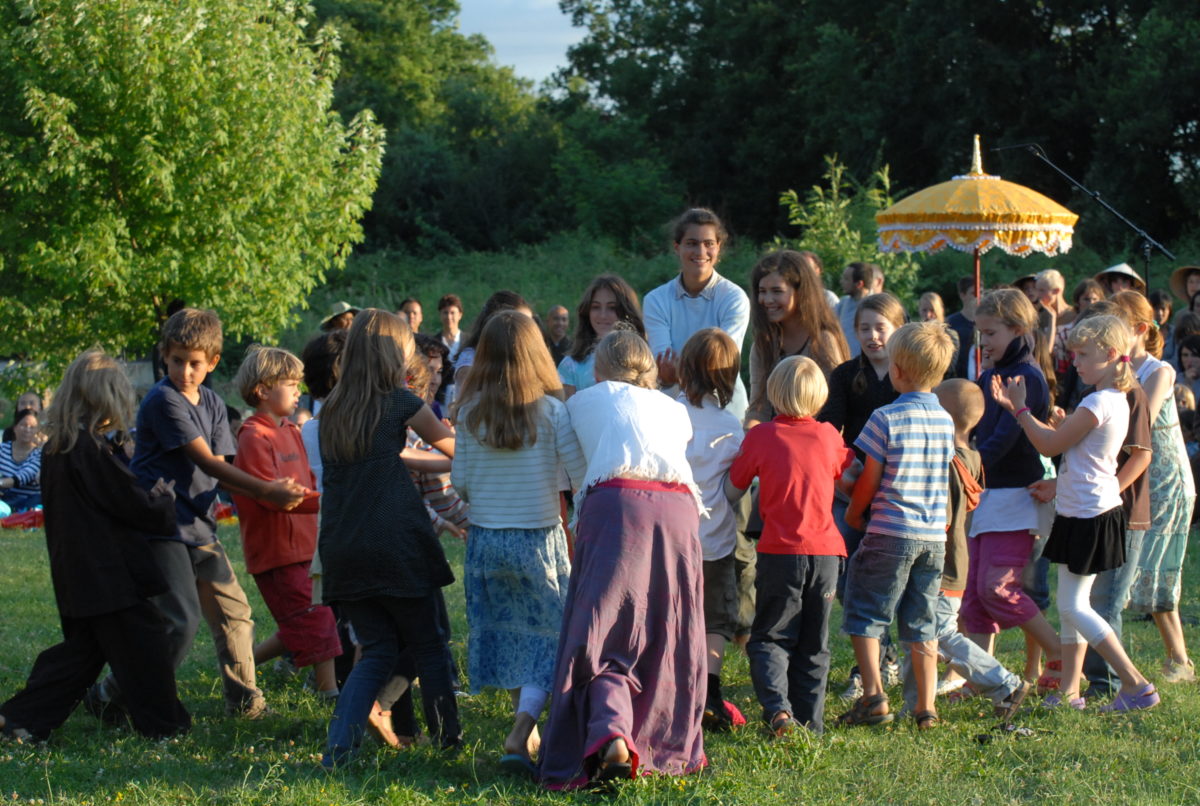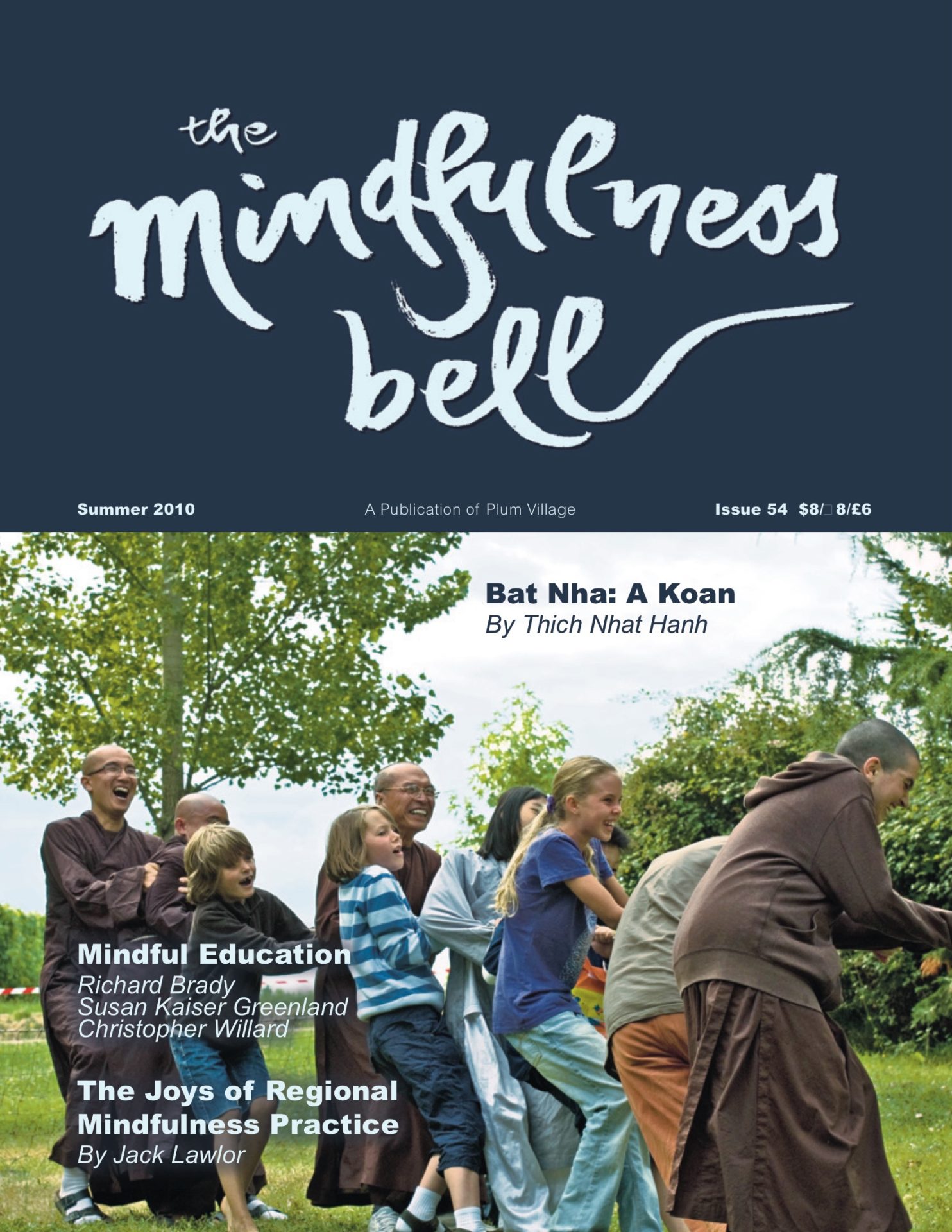Twelve Proposals
By Thich Nhat Hanh

In the year 1010, one thousand years ago, the first king of the Ly dynasty founded Thang Long, the city now known as Hanoi. The Ly dynasty has been described as “the most compassionate, peaceful and harmonious in the history of Vietnam” by the eminent historian Hoang Xuan Han. This,
Twelve Proposals
By Thich Nhat Hanh

In the year 1010, one thousand years ago, the first king of the Ly dynasty founded Thang Long, the city now known as Hanoi. The Ly dynasty has been described as “the most compassionate, peaceful and harmonious in the history of Vietnam” by the eminent historian Hoang Xuan Han. This, he wrote, was “thanks to the influence of Buddhism.”
The first king of the Ly dynasty was Ly Thai To. From a very young age he had been trained as a Buddhist monastic aspirant at Luc To temple by Zen Master Van Hanh. When he ascended to the throne he organized political and cultural life in the spirit of openness, fearlessness, and non-dualism as taught by Zen Master Van Hanh.
The practice of Buddhism gave the nation a solid foundation of peace and happiness that lasted for centuries. Ly Nhah Tong, the fourth king in the Ly Dynasty, spoke of Master Van Hanh with great respect. “Master Van Hanh’s actions embraced the whole of the past, present, and future,” he said. “His words presaged events with extraordinary accuracy. In his hometown Co Phap, he needed only to plant his staff in the ground and sit in stillness, and the city of Thang Long could enjoy stability and peace for ever.”
Ten thousand actions embrace past, present, and future,
Words of foretelling are effective,
With a monk’s staff firmly planted in Co Phap
Stability reigns in the kingdom.
The best way to celebrate 1,000 years of Hanoi is for the government and the whole nation to endeavour to take up and continue the work our forefathers began in founding the capital, namely:
- To establish a university with the name Van Hanh, offering courses that have the capacity to transmit the spirit of openness, fearlessness, and non-dualism as taught by Master Van Hanh. Other campuses can be established simultaneously in other major cities of the country.
- To allocate time for the daily study of global ethics at all levels of education, and invest money in training teachers to teach ethics, in the light both of traditional Vietnamese cultural values and global ethics. The classes should offer concrete practices that can be applied to address contemporary social evils such as domestic violence, divorce, suicide, drug abuse, prostitution, abuse of power, and corruption. In this way, the policy of model ethical towns and villages can be realized.
- To call for a summit of all religious traditions and charitable organizations in Vietnam to draft a non-sectarian Charter of Ethics that can be a basis for the practice of ethics throughout the country. This text should have the capacity to bring about a healthy and compassionate society and save the planet. Each tradition should present and contribute their own ethical code (for example, Buddhism would present the Revised Five Mindfulness Trainings), and together discuss, exchange, and learn from one another how these principles can be applied in family life, schools, and workplaces. Recitations of the resulting non-sectarian text can be organized once a month in every temple, church, town hall, or library. Government officials should also attend recitations alongside ordinary citizens.
- To establish councils of wise and ethical people in villages, towns, and cities. These councils should be composed of people renowned for their kindness and virtue, who can be ethical role models for the community. The councils could include Catholic priests, Protestant Ministers, and Buddhist Abbots and Abbesses, who would care for the ethical well-being of the community with their wisdom, loving kindness, encouragement, and firmness.
- To offer an amnesty for all those in exile abroad, banished from their hometown within Vietnam, or imprisoned, whether for being members of unauthorized organizations or churches or because they have called for pluralism, multi-partyism, freedom of religion, or freedom of speech. A number of prisoners should be given early release on social work under the guidance and sponsorship of ordained members of all religions.
- To repeal taxes for anyone without a home, a job, or a source of income.
- To establish Sunday as a “No Car Day” in Hanoi and other big cities and towns: citizens should only use bicycles, rickshaws, or horse carriages, or walk, except in emergencies. Sunday should also be a No-Smoking Day and No-Alcohol Day—a day on which no cigarettes, wine, or beer is sold.
- To support the establishment of vegetarian restaurants in the capital and other major cities. Every restaurant must offer at least a few vegetarian dishes on the menu, and everyone should be encouraged to be vegetarian for at least 15 days a month (according to the UN’s recommendations to cut back meat consumption by 50% to save the planet). Those who fully embrace a vegetarian diet can benefit from a 50% discount on their health insurance contributions.
- To subsidize solar power technology for cooking rice, boiling water, lighting, preparing tea, washing clothes, and so on.
- To end the production and use of plastic bags and packaging.
- To call for a Great Buddhist Summit, and invite Venerable monks and nuns from inside and outside the country to re-establish a People’s Buddhist Church, totally free from political interference.
- To organize retreats in Vietnam for Vietnamese people and foreigners to learn and practice ways to transform violence and build brotherhood and sisterhood in the spirit of openness and non-dualism as taught by Zen Master Van Hanh.
If the government, law-makers, and law-enforcers of the country do not want to, or cannot, realize these proposals, then we, the People, will do it by ourselves, beginning with the Buddhists and with the support of other religions and charitable associations.
The Zen Master’s name “Van Hanh” means “Ten Thousand Actions;” The Zen Master’s name “Nhat Hanh” means “One Action.” Thich Nhat Hanh founded a “Van Hanh Buddhist University” in Saigon in the early 1960s.

